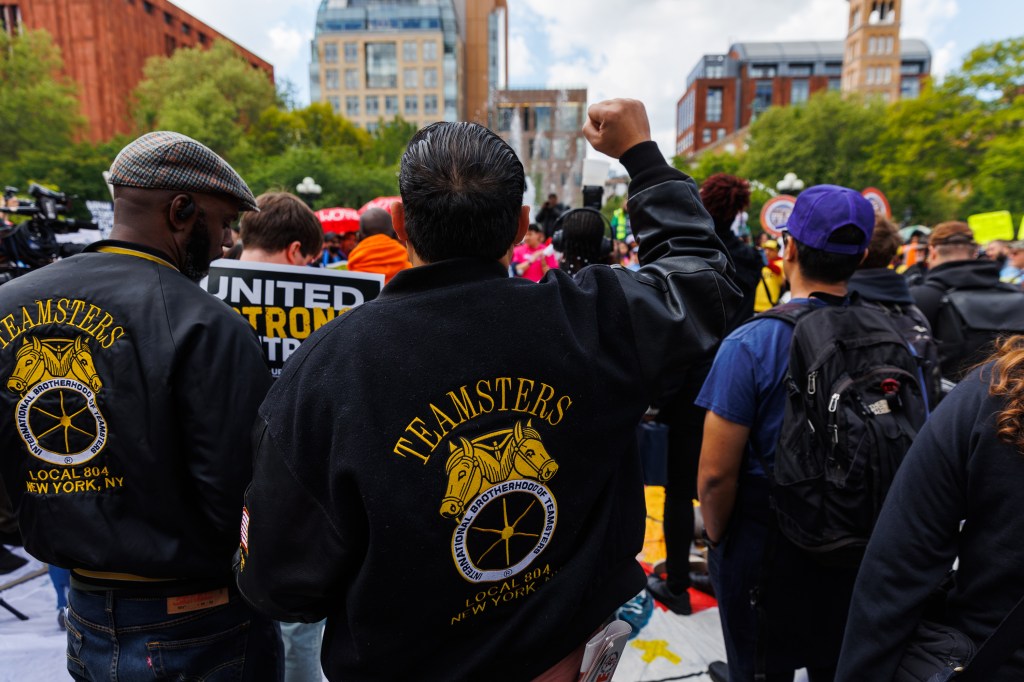Strippers have been fighting for fair labor practices for years. Until now, they’ve faced barriers to forming unions; most clubs hire dancers as independent contractors, making them exempt from laws protecting official collective organizing efforts within their workplaces.
On July 31, the National Labor Relations Board upheld a ruling that a stripper named Brandi Campbell was a statutory employee of the Centerfold Club in Columbus, Ohio, and that she was fired for engaging in activities protected by the National Labor Relations Act (NLRA).
Videos by VICE
The ruling, originally made in July 2019, came through dancer and labor activist Campbell’s case against Centerfold, where Campbell worked in 2018. She was hired to work at Centerfold as an independent contractor, but weeks later the club management discovered her blog, stripperlaborrights.com, and the cases she’s brought against multiple past clubs where she worked. Management fired Campbell for violating “no touching” laws—which courts later decided was a discriminatory firing.
Under the NLRA, employees who undertake collective action efforts at work are protected and have the right to unionize.
Campbell has been pushing for labor organizing from within clubs for years—between 2015 and 2017, she filed unfair labor practice charges and complaints against clubs she worked for across several states, including Nevada, multiple clubs in Minnesota, and Wisconsin, “alleging that they discriminated/retaliated against her for engaging in statutorily protected activities and deprived dancers of their statutory rights by misclassifying them as independent contractors,” according to the 2019 ruling by NLRB Administrative Law Judge Andrew Gollin.
Much of the ruling hinges on the requirements clubs set out for strippers as crossing from reasonable expectations for an independent contractor into demands set for an employee: At Centerfold, Gollin wrote in the 2019 ruling, this ranged from the hiring process where dancers have to audition, and follow a detailed series of rules and regulations to keep their “entertainer lease” agreement intact.
“As stated, these documents, along with the unwritten rules and expectations previously mentioned, largely dictate the dancer’s day-to-day work, including, but not limited to, scheduling, clothing, footwear, stage rotations, performances, private dance pricing, Up-time, drink commissions, prohibited conduct, and the entertainer-tenant guarantee,” Gollin wrote.
While all sorts of sex workers have had their income slashed during the COVID-19 pandemic, strippers have navigated the socially-distanced world of drive-through shows and reopened clubs, adding even more restrictions and expectations to a job that’s already full of rules. Now, even as many clubs permit encounters as socially un-distant as lap dances, they’re forced to choose between income and safety, as so many across the US workforce are.
As part of the upheld ruling, the NLRB ordered Centerfold to post a notice in its establishment that employees are now free to “form, join or assist a union, choose representatives to bargain with us on your behalf, act together with other employees for your benefit and protection, [and] choose not to engage in any of these protected activities.”





